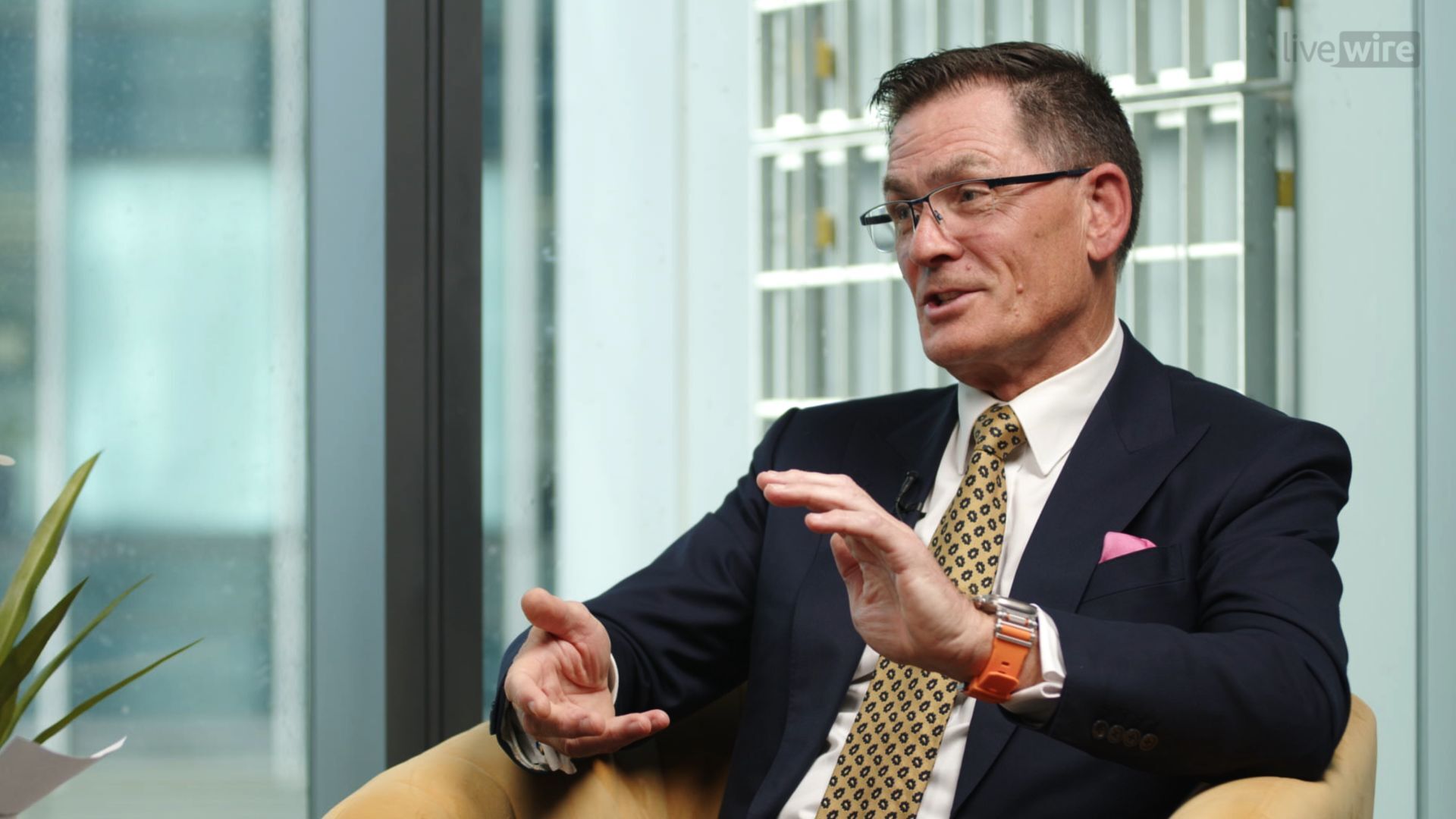Marcus Padley on the property vs shares debate: “Investment properties are for rich old people"

On a cold winter Melbourne day, Marcus Padley's 29-year-old daughter shared a concern with him that cuts deep for many parents – and speaks volumes about the pressures facing young Australians.
It was classic FOMO. Many of her colleagues and friends were buying property, but she felt anxious that she wasn’t.
“She was feeling under pressure that she should be doing the same thing. She was being left behind,” says Padley.
“And was she doing something wrong? And was she stupid for not doing it? Because some of her friends were?”
That conversation became the basis of a Marcus Today webinar exploring a big question: should a 20 to 35-year-old buy an investment property, or stick to shares?
“What are you trying to achieve?”
Padley’s first message to his daughter – and to anyone under 35 – is to take a step back and get clear on their goals:
“You just need to stop and ask yourself, what are you trying to achieve here? Are you trying to make money out of investment properties? Are you trying to make money out of shares? Or are you trying to buy a house?”
Too many younger Australians blur these objectives.
“The assumption is that it’s either investment properties or shares for younger people. But there’s a third category – buying a house. That’s different to trying to make money out of shares or trying to make money out of property," says Padley.
For older generations, buying a home was never about getting rich.
“We didn’t buy houses to make money. We happened to live in a decade or two where suddenly everybody was borrowing money to buy properties that went up in price. The original intention was to have somewhere to live," he says.
For those starting out, Padley says, the first step is simple: decide which of those three paths you’re actually pursuing.
Why shares suit younger people
Padley’s view on his daughter’s predicament was clear: at this stage of life, shares make far more sense than property.
“You don't have any kids. You can do what you want – particularly international travel. You have no responsibilities. You don’t want to be tied to an investment property in Ballarat, do you? You don’t want commitment and debt and things which pin you down mentally at night," he quips.
Shares, he argues, offer flexibility and liquidity that suit a lifestyle where priorities can change quickly.
“Fast, cheap execution at $9.99 – what does it cost to sell a house? I can instantly trade shares, be in cash if I don’t like the stock market. Click. Gone. Out.”
Just as importantly, he says learning to invest in the stock market early can pay off for decades – even if you eventually move into property.
“The earlier you learn the stock market, the better. It is something that only you succeed at with experience and time," says Padley.
The attraction – and risks – of property
Padley acknowledges the reality of why Australians love property.
“If I make 10% on shares with $100,000, I make $10,000. If you have a property worth $1 million that you borrowed $900,000 on, you’ve got the same $100,000. If you make a 10% gain, you double your money," he says.
This ability to leverage, he says, is “the key to everything and why you would invest in property.” But leverage comes with trade-offs.
“This sinks you in the ground and you lose your ability to travel, be frivolous... there’s a cost with debt, and that can change your frame of mind.”
The perception of property being safer than shares is also misleading.
“If you had the value of a house on a digital readout on the letterbox of every property in Australia, you would see that there’s tremendous volatility. It probably moves around as much as the stock market. You just don’t perceive the volatility, so it seems safer," says Padley.
And for those thinking property is a passive, stress-free investment, Padley offers a reality check.
“Imagine your house being trashed. Getting phone calls in the middle of the night because you need a plumber in your rented house. You don’t get that when you buy BHP shares.”
“Investment properties are for rich old people”
Padley’s hot take might sound anti-property, but in context, it’s not – it’s about timing and the right stage of life:
“I would say to my kids, I think investment properties are for older people and richer people. The biggest mistake, I think, would be getting old too early – getting too serious too early, getting on the property ladder before you really need to," he says.
“Don’t get too serious too early. Don’t get on the property ladder before you need to. Until then, live carefree, stress-free whilst you’re at this golden stage of your life without kids and responsibilities.”
But once you’re ready to settle down, Padley’s view flips.
“There comes a time in your life where you want a different sort of life. You flip from wanting to experiment with relationships, travel, careers to actually settling down and pursuing that dream of home ownership," he says.
At that point, buying your own home – not an investment property – becomes essential. It provides mental and emotional stability and can become an incredible long-term asset in retirement.
“The most fantastic tax break in the world is not paying tax on your principal residence when you sell it - this is a huge bonus benefit and reason to invest in a home," he says.
He also believes younger buyers shouldn’t be afraid to stretch financially when it’s for their principal home, but only under the right circumstances.
“You are prepared to take your career seriously. You’re prepared to commit to debt and that gets you into the position to leverage property.”
Interestingly, Padley has a strong view on what type of home to buy. He urges buyers to go for “a rubbish house in a decent street” – one you can buy at a discount, improve over time, and eventually sell for a higher price, rather than paying a premium for something already perfect.
The super advantage young investors forget
Padley, originally from Yorkshire, England, ends with a reminder that young Australians have a wealth-building tool their parents never did – the compulsory super guarantee. Many older Australians were already well into their careers when it was introduced, while older immigrants often only began contributing midway through their working lives.
“My runway to super was pitiful. Your runway’s 30, 40 years,” he says.
As such, he encourages younger Australians to take full advantage of the power of compounding by contributing as much as possible, up to the concessional caps.
“If you’re not paying your full $30,000 into super every year – which you’re allowed to do – you’re missing out. And if your grandparents happen to be rich, ask them to top you up. It’s perfect because they know you can’t touch it till you’re 60."
(Why not your parents, you might ask? Padley suggests saving that conversation for help with a house deposit instead.)
It’s yet another reason younger Australians shouldn’t feel pressured to jump into property too soon.
“Wait until you settle down. Until then, shares are best. Investment properties are for rich old people," Padley says.
From property to shares, Padley makes one thing clear – timing matters. So how does he think about timing markets? We explore that in the following must-watch interview with Marcus:

4 topics
1 contributor mentioned

